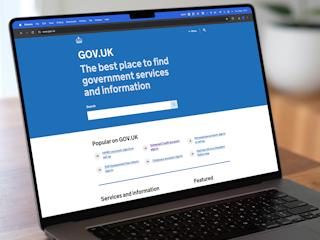International Control Room Week
We’ve teamed up with Microsoft to assess police control rooms across the United Kingdom via our Citizen-Centric Maturity Assessment. This will help us create tech-enabled roadmaps that enable police forces to move forward in their transformation journeys. Through this work, we’ve unearthed first-hand insights into the challenges they face and found tangible ways to tackle them, from large-scale transformation to what we call “thin slices” of change.
Our findings reaffirm that it’s a blend of people, processes, data and technology that is key to unlocking this next-generation transformation. While technology and data are essential enablers, it is crucial to have the right people and processes on board to truly maximize their impact.
Addressing challenges head-on
Regional police forces in the UK have shown impressive resilience in managing increasing demand from their communities. However, recruitment challenges due to economic shifts from the pandemic, continued budget scrutiny and demand’s increasing complexity have all emphasized the need for a comprehensive transformation strategy that addresses the root causes of these challenges.
Our research found that, among the police forces assessed, 50% of survey respondents had been with their respective force for over five years. While this may seem positive, it signals that most lived experience and knowledge is retained in only half the workforce. This highlights the importance of prioritizing employee experience and implementing the right tools and systems that make it easier for new recruits to get up to speed.
We also found that only 12% of respondents felt that their leadership was focused on the community and its outcomes, and they still lacked a clear strategy to deliver on the needs of the public.
Police forces are struggling to balance strategic, regulatory, operational and team needs alongside delivering on community needs and outcomes. Furthermore, over 50% of staff surveyed felt their culture was lacking in citizen-focused outcomes and that this limited their ability to make a difference in their community,
Control rooms are in the difficult position of having to adapt to meet both present and upcoming challenges while also juggling the day-to-day requirements of running an emergency service.
Leveraging technology for a brighter future
The use of technology is crucial to adapt to today’s changing landscape and adapt to the future. Police forces have done all they can to manage with what they have, but the reality is that the best resource for tackling their existing and future challenges is tech.
Only 15% of staff surveyed thought their digital tools were tailored to organizational needs and a citizen-centric approach, with no bottlenecks or inefficiencies created due to digital infrastructure. Inversely, more than 50% of respondents felt that there was inconsistency between teams in determining which systems are used for different purposes, leading to integration and data sharing issues.
3 practical ways technology can improve control rooms:
Automated data handling
Only 14% of staff surveyed felt that the trust of the community they served was a priority within their control room. This was due to a variety of competing priorities, as well as general processes and administrative activities getting in the way.
It may seem rudimentary, but in many police forces the rekeying of data from one platform into another can take up hours of capacity, reducing the time available to support incoming demand.
This is in part due to legacy applications that struggle to integrate into the backend. For example, a crime recording and a call recording system may be unable to take information and data from each other easily.
One possible solution for this is robotic process automation (RPA) technology, which provides an easy way to reduce manual entry without the need to touch fragile or legacy system backends. This decreases operational issues, reduces error and improves efficiency. Microsoft’s AI Builder and Power Automate are both tools that, if implemented, can alleviate these issues for police forces.
Virtual assistants
Control rooms are often inundated with demands that would be better supported by health services, social services or local authorities. Many communities struggle to identify where to go for the help they need. A virtual assistant can quickly manage incoming requests and more effectively signpost demand to the right support system.
This not only evens out operations, it also allows control room teams to improve response times. A useful tool here is Microsoft’s Power Virtual Agent (PVA), which creates and deploys AI bots via a single interface that can manage demand from any channel based on police force designed processes, policies and communications.
Artificial Intelligence as an employee assistant
Of the staff surveyed, 83% felt that data-gathering was done effectively within their police force via an organization-wide approach focused on community outcomes. The challenge, however, is that only 27% of respondents felt that the data gathered was used effectively to assess current performance or to inform future decision-making.
There are many applications for AI within control rooms. Of the more exciting ones is AI’s ability to serve best practices, knowledge and even recommendations to a contact officer or call agent in real-time as they engage with a citizen. This enables faster and more effective decision-making and can be especially valuable for newer staff members.
This technology is impactful in driving a more consistent service for communities while supporting staff to make more confident decisions. It drives positive outcomes both internally and externally. Microsoft’s Copilot solution, within Dynamics 365 for Customer Service, is the perfect resource for this.
Gradual progress for lasting change
Embracing transformation does not require a complete and sudden overhaul. Police forces can start by trying out innovations in a specific area, such as virtual assistants for a particular type of request in one channel.
The success of these initiatives can then encourage broader transformation, demonstrating the benefits to different teams while making the transition more manageable.
If you’re interested in starting or speeding up your control room’s transformation journey, we’re here to help.
Contact us today to explore how our tech-driven expertise and plans can guide your regional police force towards a more efficient control room. Together, we can usher in the next phase of transformation and enhance public safety in our communities.











